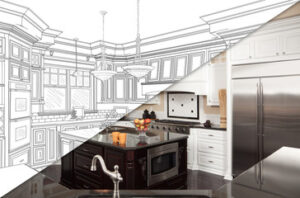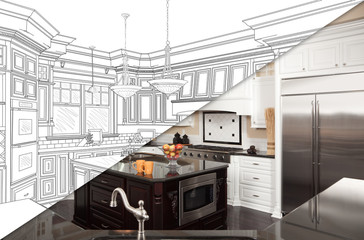Regardless of the type of kitchen renovation you do, maximizing functionality is key to getting bang for your remodeling buck. Changing up cabinet door designs or upgrading to lazy Susans are simple ways to maximize storage.
Energy efficiency is also a sustainable practice, and implementing upgrades like LED light bulbs will lower your utility bills. Other options include choosing appliances with compact designs and using furniture with multifunctional designs. Visit https://thompsonandboys.com/ to start your kitchen remodeling project.
 Cabinets
Cabinets
Cabinets are one of the most important components of a kitchen. Besides providing storage for food, appliances, and cookware, they add style to the room as well. They can help keep your kitchen organized and clutter-free so that it is easy to access what you need. Cabinets come in a variety of styles and finishes, so you can choose the best option for your home.
A professional remodeler can look at the current layout of your cabinets and suggest ways to improve their function. For example, they may install more drawers and cabinets to provide more storage, or they can knock through walls to create an open floor plan. They can also add a pantry or build an island to make the space more functional.
If your kitchen is lacking enough cabinet space, it can be difficult to work efficiently in the room. Groceries often pile up on the countertops, making it hard to prep or cook. In addition, you will need extra storage space for non-perishables, cleaning supplies, and other essentials. This is why many homeowners turn to providers of cabinet refacing Lake Forest for additional storage options in their kitchens. They can also install shelves for items like cookbooks, glassware, and serving trays.
Countertops
Countertops are an essential part of any functional kitchen. They provide stability and elbow room for meal preparation, making them a key factor in transforming your kitchen into a relaxing, efficient space that you can enjoy spending time in.
Counters can be made of a variety of materials to suit your style and needs. Granite is a popular choice for homeowners who want to incorporate natural beauty into their kitchen. This material is durable and heat-resistant but requires regular sealing to keep stains at bay. Quartz is another option that offers the durability of granite but requires less maintenance due to its non-porous surface. It is also available in a wide range of colors and styles to match your design aesthetic.
Another important aspect of countertops is landing space or drop-off space. This is the section of countertop directly in front of sinks and appliances that help with clean-up duties. Some countertop styles require more landing space than others, which is why it is important to understand the minimum requirements when choosing a layout. For example, if you install a peninsula piece of countertop that extends out in front of the sink, this cannot be considered usable counter space because it is not accessible to the user.
Appliances
Many homeowners remodel their kitchens to increase the value of their homes. Potential buyers are often turned off by homes that have outdated or basic kitchens. Kitchen remodeling services can help to make your home more appealing to potential buyers by giving it a modern look and adding new features such as energy-efficient appliances.
One of the most important things that can be done to maximize space and functionality in a kitchen is to add more storage space. This can be done by installing more cabinets, building a pantry or even hanging up shelves on the walls. It is also important to use smart storage solutions, such as vertical storage options like racks, hooks, and plate rails.
Another way to maximize space and functionality in a kitchen would be to install small appliances that pull double-duty. This would include items such as a microwave/convection oven combo. These types of appliances can save valuable countertop space and help eliminate the need for a bulky stand-alone oven. Finally, it is important to choose smart appliance options that are energy efficient. This can help to lower utility bills and reduce greenhouse gas emissions.
Lighting
Lighting is a crucial element of kitchen remodeling that creates the perfect ambiance for your home. Light colors and accent lighting can make a room feel larger while creating a warm, inviting atmosphere. A well-designed lighting scheme combines different types of electrical lights to create the right amount of brightness independent of natural light sources, providing a dynamic and functional space all day and night. Hidden lighting details such as uplighting a coffer can also add drama and depth to rooms. Energy-efficient upgrades like LEDs can help reduce household energy usage and save money on utility bills.
Understanding your lifestyle and the way you use your kitchen is the key to designing a renovation that works best for you. The right design will help you stay organized, increase functionality, and enjoy your home’s most important room.
Flooring
A kitchen renovation is a major home improvement project, and it’s important to consider every component of the space carefully. From the layout to the color palette, there are many ways to maximize space and functionality without sacrificing style or comfort.
One of the most important steps is choosing the right flooring material. Light wood tones, neutral greys, and whites will reflect light and make the room feel bigger. Dark floors can create the opposite effect, making a small room feel closed in and cramped.
Using the same colors or shades of the flooring throughout the kitchen and adjacent rooms will also enhance the sense of spaciousness. This trick works because the eye travels smoothly from wall to flooring, creating a coherent look that makes the entire area feel more expansive.
Other common kitchen remodeling projects include adding more storage solutions. Experienced remodelers can install custom drawer organizers, open shelving, and other functional solutions for a more organized and clutter-free kitchen. Installing more storage spaces will also free up floor space for other items, like a dining table or couch. This will allow you to have more seating, a desk or home office, and a larger walk-in pantry or refrigerator.
Plumbing
The plumbing system is responsible for moving water and other fluids throughout your home. Kitchen remodeling services can upgrade your current plumbing to improve the flow of water and other liquids. This may include installing new fixtures and pipes or relocating existing ones. The professionals can help you choose the best options to suit your kitchen needs and budget.
A remodeled kitchen is not only beautiful but also more functional. You can replace old appliances with energy-efficient models that will save you money on your utility bill. These upgrades will make your kitchen more efficient and safe to work in. Older appliances can be fire hazards and can cause electric shocks.
Kitchen remodeling can also add value to your home by increasing its overall appearance and making it more appealing to potential buyers. This is an investment that can pay off in the long run, as kitchens are one of the most important factors homebuyers consider when choosing a property.
Whether you’re interested in creating a bright and airy design or a more modern feel, a remodeling project can give you the perfect kitchen that reflects your style. Remodeling contractors will work with you to create a plan that includes both necessary and desirable changes. After creating a rough picture of your ideal kitchen, they will help you choose the best options to meet your budget and preferences.
Electrical
A kitchen remodel typically includes upgrading appliances and replacing old fixtures with energy-efficient or space-saving ones. It also often involves rewiring or adding circuits to accommodate the electrical needs of the remodeled area. This work must be done correctly to ensure the safety of occupants and to avoid any electrical fire hazards.
A professional remodeler will look at the current layout of your kitchen and determine if any changes are needed to maximize space. They can make your kitchen feel bigger by relocating cabinets, knocking through walls or partitions, removing unnecessary closets, or incorporating a mudroom or pantry into the overall design. They can also help you figure out how much storage you need and where it should go.
Remodeling your home can be a rewarding experience, especially if you’re looking to increase its value or turn it into the dream home of your dreams. It can save you the expense and hassle of moving to a new house, and it may even increase your property’s resale value. However, it’s important to remember that remodeling is a huge undertaking and requires the services of an expert to make sure everything goes according to plan.


